Seed saving
Keith Parkins | 26.03.2007 16:35 | Bio-technology | Ecology | Education | South Coast | World

dwarf French beans from Slovakia
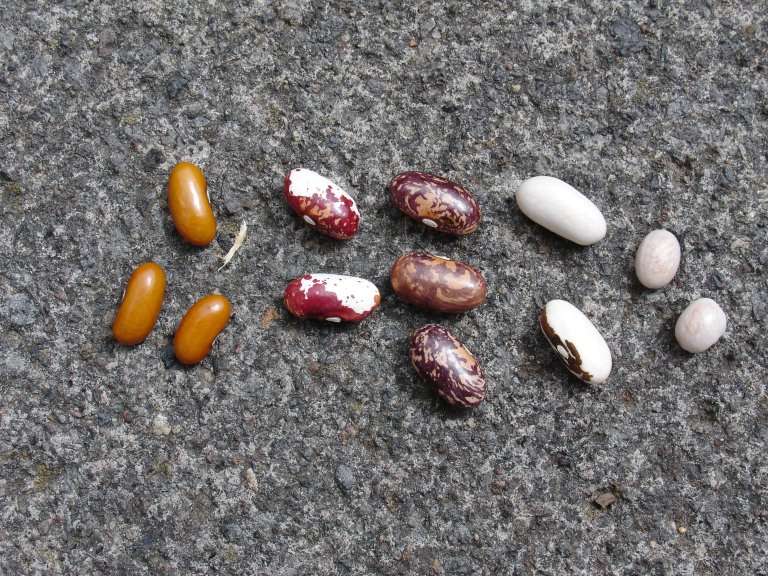
climbing French beans from Slovakia
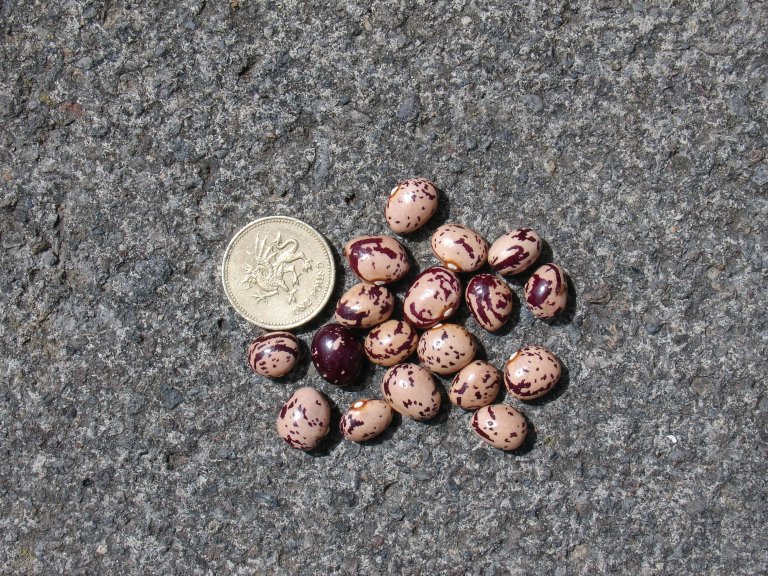
climbing French beans var Broughton Astley
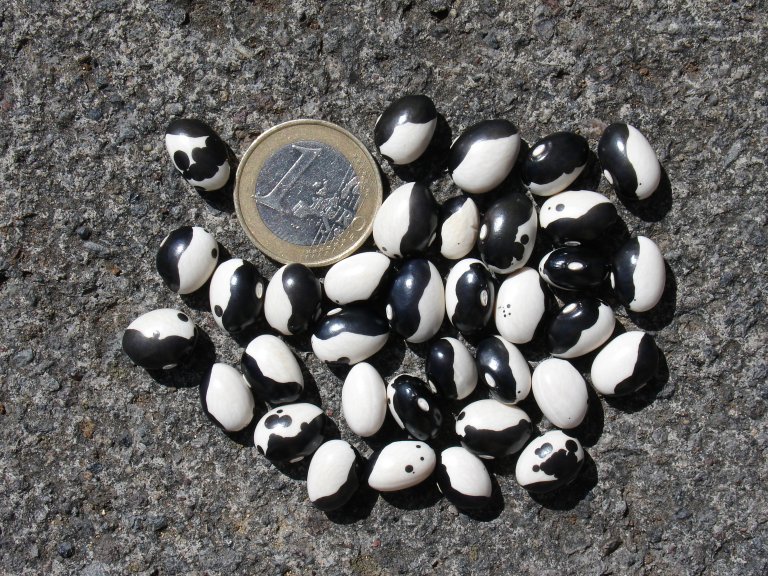
dwarf French beans var Orca
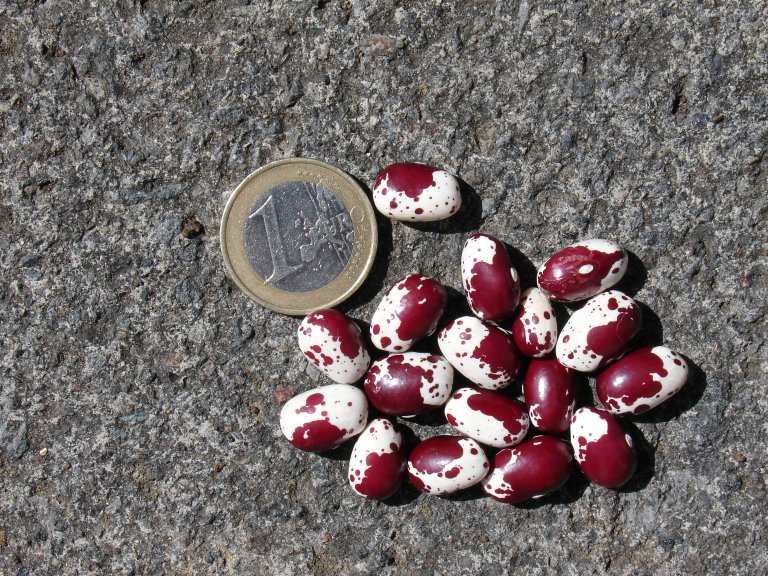
French beans var Judias de Pinta de Arico de Tenerife
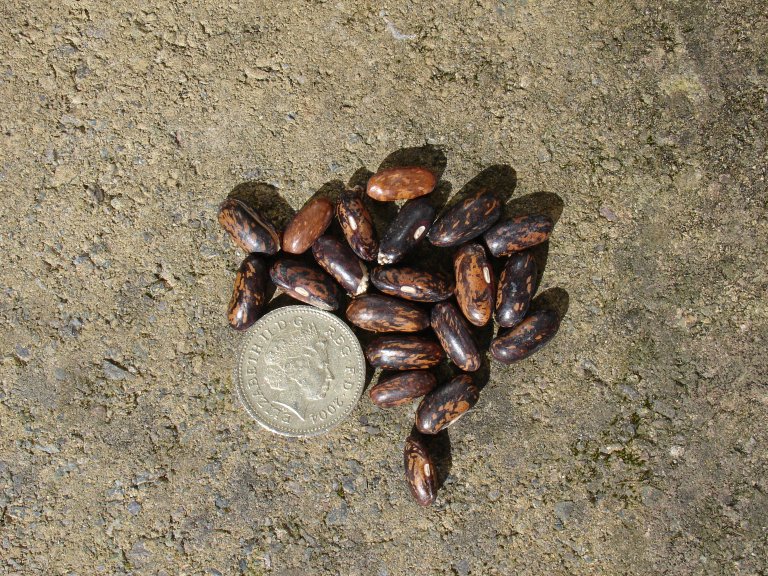
Dwarf French beans var Tendergreen
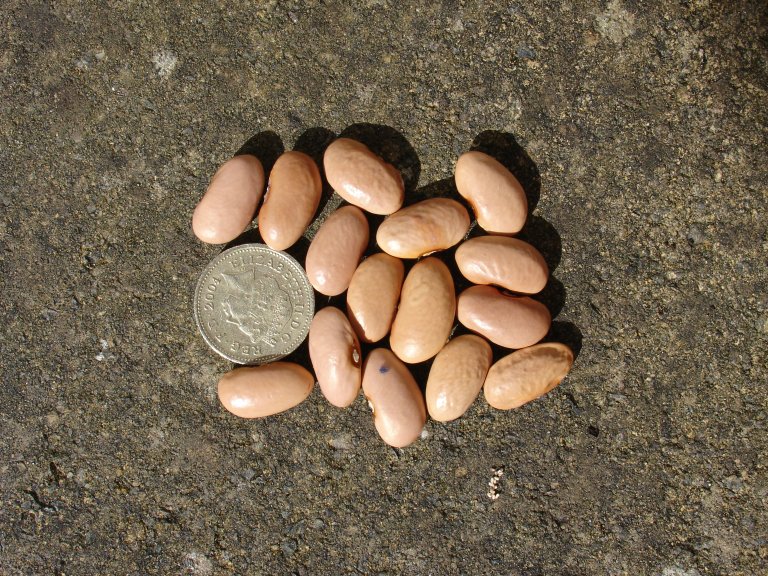
Climbing French beans var Lazy Housewife
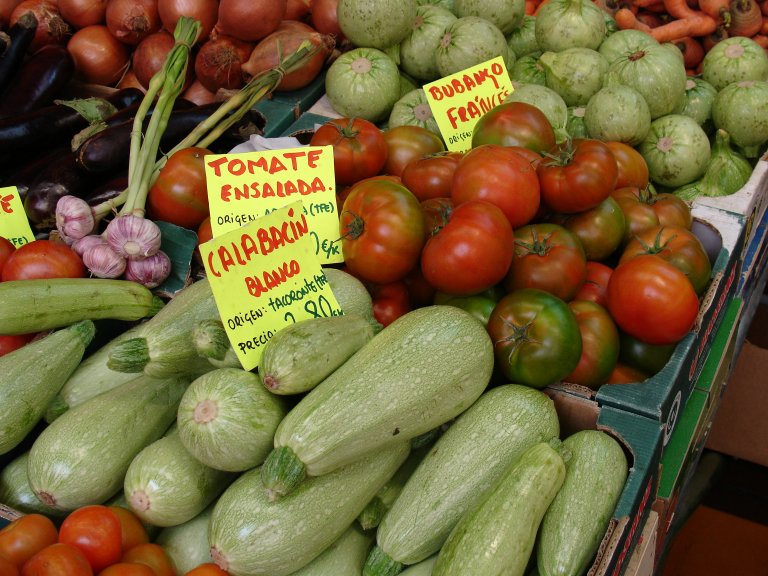
Tomatoes var tomate ensalada
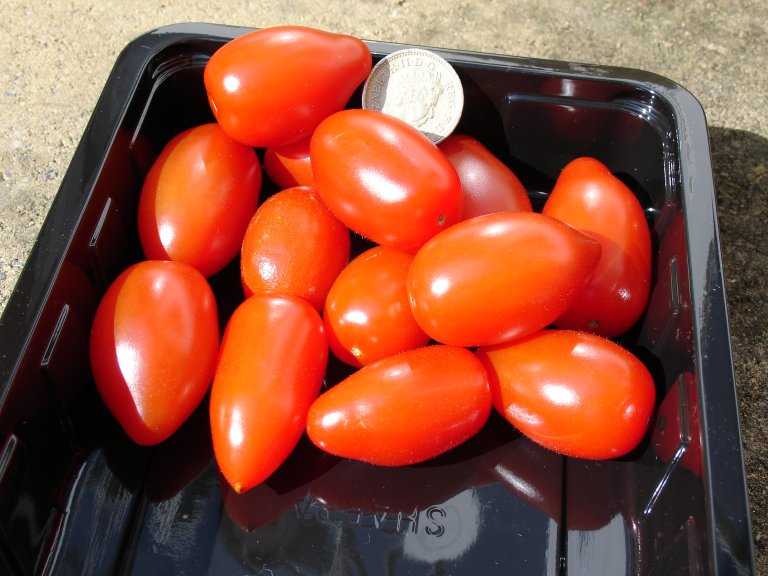
Tomatoes var Mini San Marzano
Faced with the overwhelming totality of environmental disasters – global warming, climate change, nuclear power, genetic engineering – it is difficult to know what we as individuals can do to make a difference. Change a few light bulbs, cycle to work.
Seed saving is something we can all do, and it does make a difference.
Why save seeds, how does it make a difference, are there not farmers, seed banks, crop research stations?
Crop research stations have a tendency to focus on a few commercial varieties. Farmers grow a handful of commercial varieties.
Yes there are seed banks, but they are vulnerable to war, terrorist attacks and power failures.
The illegal war on Iraq destroyed a seed bank in Iraq, an important seed bank for grains. The Philippines is an important rice growing area, it has an international rice research centre. A seed bank in the Philippines suffered a power failure, causing loss of may varieties of rice.
In Norway they are to establish what has been termed the 'Domesday Vault'. It will be located within the Arctic Circle, deep underground. The seeds will be kept below minus 20 degrees, should there be a power failure, it will take weeks for the temperature to rise to minus six degrees.
Seed banks are equivalent to putting all your eggs in one basket and are highly vulnerable to failure.
Seed banks have another problem, they are static. Seeds growing in our gardens are constantly evolving and adapting.
I have recently been given climbing French beans that have been grown in the same allotments in Broughton Astley for 40 years. Locally they are known as 'Polish beans', as they are believed to have originated in Poland.
I will be growing these in my garden. I have passed to friends to grow in their gardens, and I will be passing some back to Poland.
The Broughton Astley climbing French beans, as we have decided to call them, have had 40 years to adapt to the conditions in the allotments in Broughton Astley, they will now have the opportunity to adapt again to their new habitats.
HDRA, or Garden Organic as they now prefer to be known, have many such examples of vegetables which have been grown by the same family, often for many generations.
 http://www.hdra.org.uk/
http://www.hdra.org.uk/ Naming, can be problematic, as we have recently experienced with French beans from a crop research station in Prague.
 http://www.vurv.cz/
http://www.vurv.cz/ Pick a name which is fairly unique, the location where found, the family growing them, something characteristic about the plant or seed.
Orca dwarf French beans have been so named for obvious reasons.
Go back a century or more, and for any vegetable you will find many hundreds of varieties, now you can count them on the fingers of one hand. This is partially due to commercial pressures, partly due to national seed lists being over restrictive.
That is why we cannot rely on farmers to safeguard our generic heritage, as they only grow a handful of commercial varieties.
And yet there is incredible diversity.
This is best illustrated with French beans. We have dwarf French beans, climbing French beans. The pods can be pencil shape or flat, waxy or non-waxy, green, purple or yellow. The beans are long and elongated, round, plump and fat, almost all colours of the rainbow.
Pumpkins and courgettes, also show great diversity. Little ones big ones, round, elongated. Shapes that look like a Turk's turban or the cartoonist's impression of a UFO. Colours range from green, dark green, light green, blue, yellow, red.
When growing pumpkins or squash, only grow one variety, or be prepared to manually pollinate, as all are from the squash or Cucurbitacea family and readily cross-fertilise.
Tomatoes come in many shapes and sizes, from small cherry tomatoes to mammoth tomatoes weighing in at over half a kilo. Colours range from red, to yellow to green, to pale yellow almost white to dark purple almost black.
Sources of seeds are seed swaps which are now springing up all over the country. The one to attend is Seedy Sunday Brighton, usually held in February each year, just in time for the growing season.
 http://www.indymedia.org.uk/en/2007/02/361644.html
http://www.indymedia.org.uk/en/2007/02/361644.html Garden Organic at Yalding in Kent at their all day Celebrate Spring event Saturday 31 March 2007 will have a seed swap. Members free (non members £4). tel 01622 814640
 http://www.gardenorganic.org.uk/
http://www.gardenorganic.org.uk/ Another good source are the small seed suppliers found at seed swaps, Thomas Etty and Real Seeds.
 http://www.realseeds.co.uk/
http://www.realseeds.co.uk/  http://www.thomasetty.co.uk/
http://www.thomasetty.co.uk/ An absolute must is the Heritage Seed Library run by HDRA, or Garden Organic as they now insist on being called. Members receive a seed catalogue and six packets of seeds, although you are too late to receive any seeds for this year.
 http://www.hdra.org.uk/
http://www.hdra.org.uk/ The big commercial seed companies are a big disappointment, as they only supply commercial seeds off the restricted national seed list. There are though sometimes pleasant surprises. B&Q, packed under their own brand name, have several heritage varieties, including organically raised seeds.
If travelling in Europe, you will find a much better selection of seeds. In Tenerife, for example, you will find seeds in flower shops, garden shops and sometimes even supermarkets, that include a good range of heritage varieties.
You are what you eat. If you like what you eat, save the seeds. In Tenerife, try tomate ensalada, a large tomato, the smallest the size of an apple. In France, try Marmande, another large, irregularly shaped tomato. Neither should be confused with the tasteless beefsteak tomatoes found on supermarket shelves.
Supermarket produce is selected on cosmetics, handling quality, shelf life. Taste is a long way down the list of priorities.
Things are though starting to change. Most supermarkets now have an an upmarket range of tomatoes, an excuse for yet more excess packing and to overcharge the customer.
I was pleasantly surprised recently to find Mini San Marzano tomatoes on sale in Asda, at a price.
San Marzano are an Italian heritage variety that originate in San Marzano. Very tasty.
If you live in the south of England or London, look out on farmers markets for tomatoes from a tomato grower on the Isle of Wight. They have a very good range of tomatoes.
If you like a tomato, save the seeds. You are just in time for growing the seeds, potting on, and they will be ready for planting out in May.
If you lack a garden, do not despair. Tomatoes, for example, can be grown in a big pot on a balcony.
Or, with a few mates and the support of the local community, hijack public space and turn it into a community garden.
The countryside is under threat from industrial farming, overuse of chemicals, genetic engineering, greedy property developers. But we have no room for complacency, our gardens are under threat too. Greedy property developers, aided and abetted by corrupt councillors and planning officials, and a loophole in planning guidance that defines gardens as 'brownfield sites', are seizing gardens for development.
HDRA, or Garden Organic as they prefer to be known, are not only the lead organisation in seed saving, they are also leading the campaign to save our gardens. They are asking that we write to our Members of Parliament, sign their on-line petition, to force a change in planning guidance and provide greater protection for gardens from unwanted development.
 http://www.gardenorganic.org.uk/saveourgardens/index.php
http://www.gardenorganic.org.uk/saveourgardens/index.php We are just in time to plant peas, broad beans (only one variety of broad beans as they cross-fertilise). Also we can now plant radishes, try French Breakfast or Scarlet Globe. In May, plant out the tomatoes we have grown indoors, sow French beans, runner beans, courgettes, pumpkins.
If we do not save our seeds, who will?
Websites
 http://www.hdra.org.uk/
http://www.hdra.org.uk/  http://www.thefoodproject.org.uk/
http://www.thefoodproject.org.uk/  http://www.foodnotlawns.com/
http://www.foodnotlawns.com/  http://www.seedysunday.org/
http://www.seedysunday.org/  http://www.seedambassadors.org/
http://www.seedambassadors.org/  http://www.realseeds.co.uk/
http://www.realseeds.co.uk/  http://www.thomasetty.co.uk/
http://www.thomasetty.co.uk/ References and further reading
Lester R Brown, Plan B 2.0, Norton, 2006
 http://www.earth-policy.org/Books/PB2/Contents.htm
http://www.earth-policy.org/Books/PB2/Contents.htm Cindy Engel (ed), The Gaia Book of Organic Gardening, Gaia Books, 2005
Kate Evans, Funny Weather, Myriad Editions, 2006
 http://www.heureka.clara.net/books/funny-weather.htm
http://www.heureka.clara.net/books/funny-weather.htm Heather Coburn Flores, Food Not Lawns, Chelsea Green, 2006
Dominique Guille, The Seeds of Kokopelli, Association Kokopelli
 http://www.heureka.clara.net/books/kokopelli.htm
http://www.heureka.clara.net/books/kokopelli.htm Andrew Kimbrell (ed), Fatal Harvest: The Tragedy of Industrial Agriculture, Island Press, 2002
 http://www.fatalharvest.org/
http://www.fatalharvest.org/ Mark Kinver, 'Doomsday' vault design unveiled, BBC News on-line, 9 February 2007
 http://news.bbc.co.uk/1/hi/sci/tech/6335899.stm
http://news.bbc.co.uk/1/hi/sci/tech/6335899.stm Keith Parkins, Sowing Seeds of Dissent, Indymedia UK, 6 September 2004
 http://www.indymedia.org.uk/en/2004/09/297391.html
http://www.indymedia.org.uk/en/2004/09/297391.html Keith Parkins, Seeds of Dissent, www.heureka.clara.net, September 2004
 http://www.heureka.clara.net/gaia/seeds.htm
http://www.heureka.clara.net/gaia/seeds.htm Keith Parkins, Curitiba – Designing a sustainable city, April 2006
 http://www.heureka.clara.net/gaia/curitiba.htm
http://www.heureka.clara.net/gaia/curitiba.htm Keith Parkins, Allotments at risk, Indymedia UK, 20 October 2006
 http://www.indymedia.org.uk/en/2006/10/353986.html
http://www.indymedia.org.uk/en/2006/10/353986.html Keith Parkins, Seedy Sunday Brighton 2007, Indymedia UK, 6 February 2007
 http://www.indymedia.org.uk/en/2007/02/361644.html?c=on
http://www.indymedia.org.uk/en/2007/02/361644.html?c=on Keith Parkins, Do we need industrial agriculture?, Indymedia UK, 19 February 2007
 http://www.indymedia.org.uk/en/2007/02/362714.html?c=on
http://www.indymedia.org.uk/en/2007/02/362714.html?c=on Keith Parkins, Gardens under threat, Indymedia UK, 26 March 2007
Keith Parkins, Bad Food Britain, to be published
 http://www.heureka.clara.net/gaia/
http://www.heureka.clara.net/gaia/ Pauline Pears (ed), HDRA Encyclopedia of Organic Gardening, Dorling Kindersley, 2001
Michael Pollock (ed), RHS Fruit and Vegetable Gardening, Dorling Kindersley, 2002
John Seymour, The New Complete Book of Self-Sufficiency, Dorling Kindersley, 2003
Jack Shamash, the Great Graden Grab, The Ecologist, February 2007
Soil of the Century, SchNEWS, 2 February 2007
 http://www.schnews.org.uk/archive/news574.htm
http://www.schnews.org.uk/archive/news574.htm
Keith Parkins
 Homepage:
http://www.heureka.clara.net/gaia
Homepage:
http://www.heureka.clara.net/gaia
Comments
Display the following comment